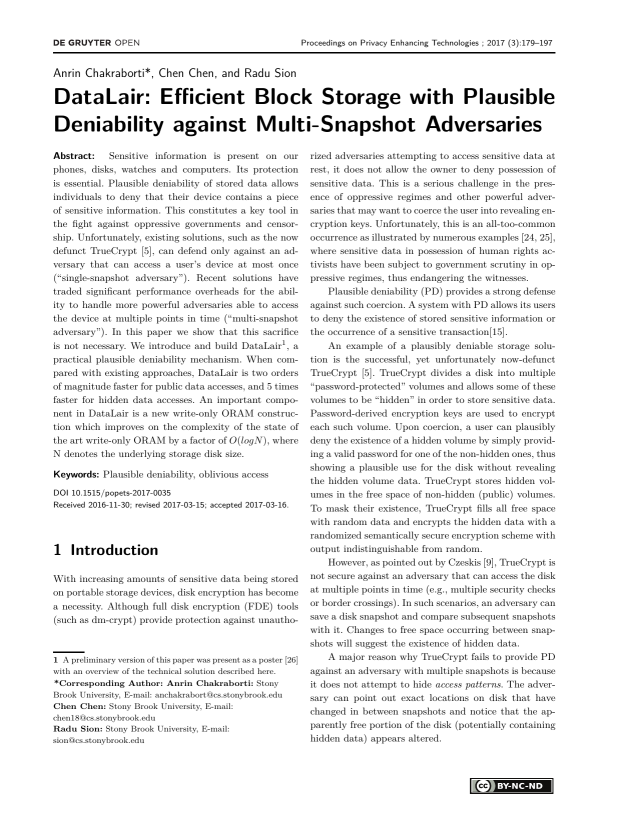DataLair: Efficient Block Storage with Plausible Deniability against Multi-Snapshot Adversaries
Authors: Anrin Chakraborti (Stony Brook University), Chen Chen (Stony Brook University), Radu Sion (Stony Brook University)
Volume: 2017
Issue: 3
Pages: 179–197
DOI: https://doi.org/10.1515/popets-2017-0035
Abstract: Sensitive information is present on our phones, disks, watches and computers. Its protection is essential. Plausible deniability of stored data allows individuals to deny that their device contains a piece of sensitive information. This constitutes a key tool in the fight against oppressive governments and censorship. Unfortunately, existing solutions, such as the now defunct TrueCrypt [5], can defend only against an adversary that can access a user’s device at most once (“single-snapshot adversary”). Recent solutions have traded significant performance overheads for the ability to handle more powerful adversaries able to access the device at multiple points in time (“multi-snapshot adversary”). In this paper we show that this sacrifice is not necessary. We introduce and build DataLair1 , a practical plausible deniability mechanism. When compared with existing approaches, DataLair is two orders of magnitude faster for public data accesses, and 5 times faster for hidden data accesses. An important component in DataLair is a new write-only ORAM construction which improves on the complexity of the state of the art write-only ORAM by a factor of O(logN ), where N denotes the underlying storage disk size.
Keywords: Plausible deniability, oblivious access
Copyright in PoPETs articles are held by their authors. This article is published under a Creative Commons Attribution-NonCommercial-NoDerivs 3.0 license.

